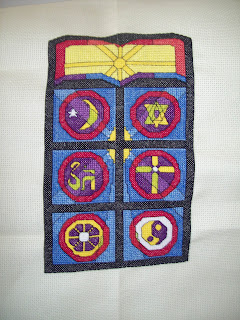 Goodfellas, 1990, directed by Martin Scorcese.
Goodfellas, 1990, directed by Martin Scorcese.Written by Nicholas Peleggi and Martin Scorcese.
starring: Ray Liotta, Robert DeNiro, and Joe Pesci
"Henry Hill and his friends work their way up through the mob hierarchy." (IMDB).
The great thing about Martin Scorcese is that he really loves films. You can see it in almost every scene he creates; this guy seriously loves films, he loves music, and more than anything else, he really cares about the characters he's bringing to life. You'll probably never see a greater example of it anywhere than this entire movie.
 |
| Lookin' hot. Lookin' DAMN hot! |
-Henry's first introduction to Jimmy Conway
-the congratulatory huddle at Henry's first bust at the courthouse
-Henry's beating after his father receives the truancy notice from school
Instead of clubbing you over the head to make you notice that these events are important, he just stops the camera and freezes the action, like HEY! THIS STUFF WAS MAJOR! PAY ATTENTION! It's fun.
The music: amazing. And unlike Casino, almost perfectly balanced between emotion, action, and fill. Many scholarly pieces that are written about this film discuss Scorcese's "maturity" as a filmmaker, and how this film marked it; the music and its placement indicates this, scene after scene. You get Tony Bennett, Johnny Mathis, The Chantels, Bobby Vinton, The Shangri-las, A lot of Rolling Stones (score!), Cream, Derek and the Dominos, George Harrison, Sid Vicious, and Muddy Waters. The music really, really makes the film.
The writing: this is the (true) story of Henry Hill, written first in Nicholas Peleggi's novel Wiseguy, and rewritten as a screenplay by Peleggi and Scorcese. It's exciting, it's funny, and the way the story is told, from Henry's (and his wife Karen's) insider viewpoint is excellent. They're both competent narrators and interesting, likable personalities. As with many narratives in the Mafia genre, we get pretty early on that things start off well but then begin to decline---that's how a lot of film writers talk about Mafia pictures in general, as in how that decline is shown, how it's dealt with, how do they meet their ends, death, jail, witness protection? In this instance, Henry gets out, but not because he wants to; the striking thing about Henry's story is that we see just how dangerous these lives of these men really are: the cops, the drugs, the whackings . . . but it was also about status, belonging, and family. Not just gangster concepts, right?
Everyone talks about this scene, and it's well worth the buzz. There are very few serious bits of dialogue spoken, but the scene does a magnificent job of showing that sense of status and belonging up there. Yeah, the song was also used in Adventures in Babysitting, but this *completely* blows it away; it's one of my favorite scenes of any movie, ever.






























































